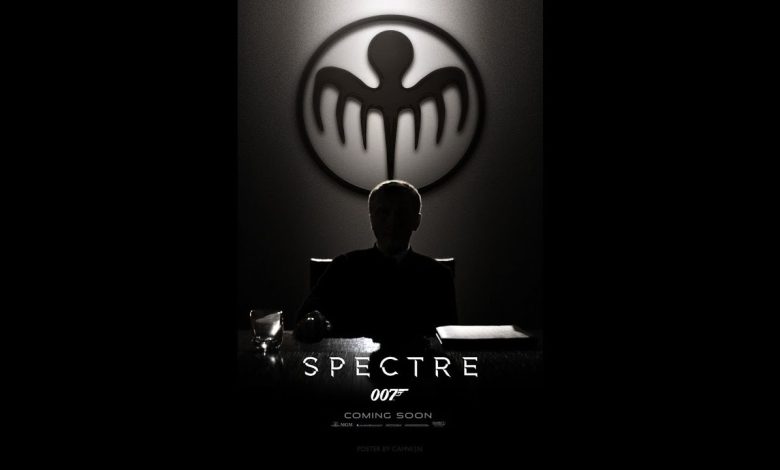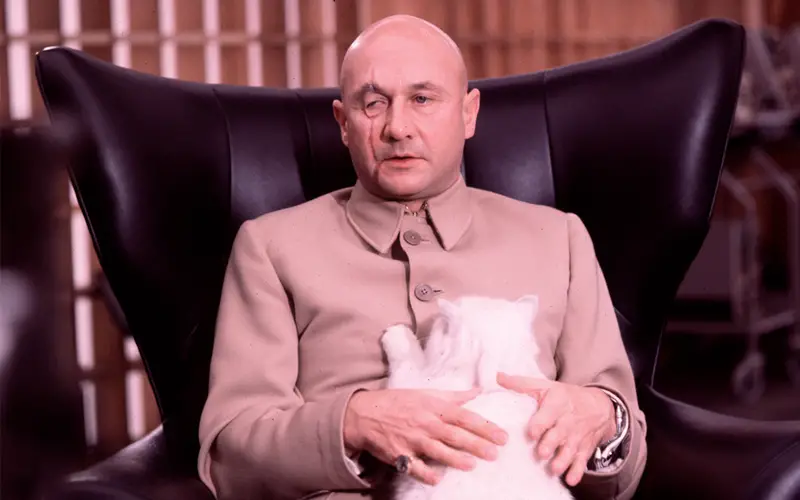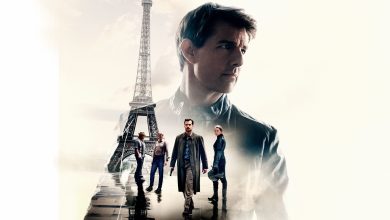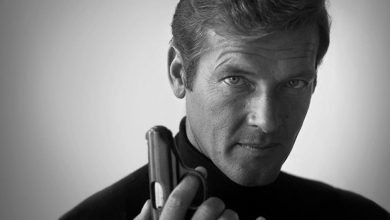Here’s Why the James Bond Film Is Called Spectre

The world’s most famous spy, James Bond, is poised to return to the silver screen in the highly anticipated film “Spectre.” This latest installment in the Bond franchise has generated immense excitement among fans, as the film promises to delve into the intricate world of the notorious organization known as Spectre. With its intriguing title and the revival of iconic villains, “Spectre” is set to captivate audiences once again. In this article, we explore the significance of Spectre in the Bond universe, its historical roots, the menacing presence of Ernst Stavro Blofeld, and the anticipation surrounding the film’s release.
Key Takeaways
- Spectre” represents the Special Executive for Counter-intelligence, Terrorism, Revenge, and Extortion, a global terrorist organization that plays a major role in the Bond stories.
- Spectre’s return to the Bond franchise allows for the resurgence of the ultimate villain, Ernst Stavro Blofeld, and the exploration of the organization’s nefarious objectives.
- The film’s casting choices, including Christoph Waltz and Andrew Scott, have heightened speculation regarding the portrayal of Blofeld and the potential impact on the story.
- Spectre’s historical significance, as originally conceived by Ian Fleming, adds depth and continuity to the Bond universe.
- The return of Spectre injects fresh energy into the franchise, revitalizing the iconic elements that have captivated audiences for generations.
Unveiling Spectre: Deciphering the Meaning
Fortunately, Spectre is a more decipherable title compared to some of the enigmatic Bond films of the past, such as “Quantum of Solace.” Spectre, or rather SPECTRE, stands for the Special Executive for Counter-intelligence, Terrorism, Revenge, and Extortion. This global terrorist organization plays a pivotal role in the Bond stories, and its name boldly reveals its intentions. Many notable Bond villains have aligned themselves with Spectre, including the infamous Dr. No, Emilio Largo, and the iconic Ernst Stavro Blofeld.
The Birth of Spectre: Ian Fleming’s Vision
The concept of Spectre was originally conceived by Ian Fleming, the author behind the James Bond novels. In 1959, Fleming introduced Spectre in the novel “Thunderball” as a villainous organization capable of posing a significant threat to the British government. Fleming’s foresight proved remarkable, as Spectre’s legacy endures even after 56 years.
Spectre’s Operations and Leadership
Spectre operates as a commercial organization led by the notorious Ernst Stavro Blofeld. Blofeld, often depicted with a fluffy white cat, has been portrayed by various actors, including Donald Pleasence, Telly Savalas, and Max Von Sydow. Spectre recruits its members from criminal groups worldwide, ranging from the Gestapo and the Mafia to the fictional Soviet counterintelligence agency called SMERSH. With a zero-tolerance policy for failure, Spectre demands strict adherence to its directives, even if it means targeting James Bond himself.
Spectre’s Objectives: Creating Chaos and Extorting Power
In “From Russia With Love,” Blofeld explains Spectre’s main objective, using Siamese fighting fish as a metaphor. Spectre aims to create conflicts between superpowers, exploiting their vulnerability to strike at the opportune moment. The organization remains neutral, blackmailing both good and evil rulers alike. Spectre’s assassins are notorious for their ruthlessness, as depicted by Red Grant, Rosa Klebb, Mr. Wint, and Mr. Kidd in various Bond films.
The Ultimate Arch-Villain: Ernst Stavro Blofeld
Among the multitude of Bond villains, Ernst Stavro Blofeld reigns as the epitome of evil. Pleasence’s portrayal of the bald-headed criminal mastermind with a scar over his eye in “You Only Live Twice” has left an indelible mark on the world of action villains. Notably, Blofeld even infamously orchestrates the murder of Bond’s wife in “On Her Majesty’s Secret Service.” Although Bond wasted no time finding solace in the arms of various Bond girls, the impact of Blofeld’s actions resonates throughout the series.

The Legal Battle: Blofeld’s Absence and Triumphant Return
Blofeld’s character disappeared from the Bond franchise after “For Your Eyes Only” due to legal issues. In a rather unceremonious manner, he is killed by Bond before the opening credits, dropped down a smokestack from a helicopter. However, the legal complications surrounding the character have recently been resolved, allowing the return of both Blofeld and the organization Spectre. The anticipation surrounding Spectre’s revival explains why the filmmakers opted to use the organization’s name as the film’s title.
The Quantum Connection: Spectre’s Ambiguity and Bond’s Encounter
Some fans speculated that Spectre might be behind the events in “Casino Royale” (2006), where Bond tracks down an unnamed criminal organization. However, the subsequent film, “Quantum of Solace,” reveals that the organization’s name is simply Quantum, albeit featuring several Spectre-like elements. The synopsis of Spectre suggests that Daniel Craig’s Bond will only now discover Spectre for the first time in the new film, as the franchise rebooted with “Casino Royale.”
The Villains of Spectre: Christoph Waltz and Andrew Scott
Can the new Bond film live up to Spectre’s reputation? Bond enthusiasts are hopeful, as filmmakers have announced the casting of Christoph Waltz and Andrew Scott. Known for their captivating portrayals of formidable villains, Waltz’s role as the Nazi Col. Hans Landa in “Inglourious Basterds” and Scott’s portrayal of Moriarty in BBC’s “Sherlock” have garnered critical acclaim. The question on fans’ minds is whether one of these talented actors will portray the notorious Blofeld.


Shop For : Factory Entertainment James Bond Spectre Number 1 Blofeld’s Ring, Gold
FAQ:
1. What is the significance of the title “Spectre” in the Bond franchise?
The title “Spectre” holds great significance in the Bond franchise as it represents the Special Executive for Counter-intelligence, Terrorism, Revenge, and Extortion. Spectre is a global terrorist organization that plays a major role in the Bond stories. It serves as the arch-nemesis of James Bond, posing a constant threat to the British government and the world at large. The organization’s name reflects its explicit intentions, openly proclaiming its involvement in counterintelligence, terrorism, revenge, and extortion. Spectre’s legacy and notoriety make it a fitting title for the new Bond film.
2. How does Spectre differ from other Bond villains and organizations?
Spectre distinguishes itself from other Bond villains and organizations in several ways. Firstly, it is a commercial organization, led by the iconic villain Ernst Stavro Blofeld, with a recruitment strategy that spans criminal groups worldwide. This sets Spectre apart from individual villains and highlights its global reach and influence. Secondly, Spectre operates with meticulous planning and a grand objective of creating conflicts between superpowers, exploiting their vulnerability for its gain. Unlike other organizations, Spectre remains neutral, manipulating both good and evil rulers alike. Lastly, Spectre’s assassins exhibit an unparalleled level of ruthlessness, employing unique and memorable methods to eliminate their targets.
3. What is the historical significance of Spectre in the Bond universe?
Spectre holds historical significance in the Bond universe as it was originally conceived by Ian Fleming, the author of the James Bond novels. Introduced in Fleming’s 1959 novel “Thunderball,” Spectre emerged as a villainous organization that posed a credible threat to the British government during the Cold War era. Remarkably, Spectre’s relevance and impact have endured over 56 years, captivating audiences and leaving an indelible mark on the Bond franchise. The return of Spectre in the new film reflects its enduring legacy and the enduring fascination it holds for Bond enthusiasts.
4. Will Christoph Waltz or Andrew Scott play the role of Blofeld in the new Bond film?
While fans are eager to see who will portray the iconic villain Blofeld in the upcoming Bond film, the casting choices of Christoph Waltz and Andrew Scott have not been explicitly confirmed to be for the role of Blofeld. Both actors have proven their mettle in playing formidable villains, with Waltz’s captivating portrayal in “Inglourious Basterds” and Scott’s compelling performance as Moriarty in BBC’s “Sherlock.” The possibility of one of them assuming the role of Blofeld has sparked speculation among Bond fanatics, heightening the anticipation surrounding the film’s release.
5. How does Spectre differ from the organization Quantum?
Spectre and the organization Quantum share some similarities but are distinct entities within the Bond franchise. While Quantum bears resemblance to Spectre in terms of its clandestine operations and involvement in criminal activities, it is a separate organization with its own agenda. Spectre predates Quantum and has a more prominent presence throughout the Bond series. In the film “Quantum of Solace,” Bond encounters Quantum, believing it to be the organization he was tracking in “Casino Royale.” However, the subsequent film reveals that Quantum is not Spectre, introducing a separate narrative arc for the organization.
6. Will Blofeld’s character play a major role in the new Bond film?
As the return of Spectre has been highly anticipated, fans hope to witness the resurgence of Ernst Stavro Blofeld as a significant character in the new Bond film. However, the exact extent of Blofeld’s involvement and the film’s storyline remain undisclosed. With the casting of talented actors such as Christoph Waltz and Andrew Scott, the filmmakers are poised to deliver a formidable villain. Whether Blofeld will be central to the plot or play a supporting role is yet to be revealed, leaving audiences eagerly awaiting the film’s release.
7. What distinguishes Blofeld as the ultimate Bond villain?
Ernst Stavro Blofeld stands out as the ultimate Bond villain due to his enduring legacy and his portrayal by various actors throughout the Bond franchise. From Donald Pleasence to Telly Savalas and Max Von Sydow, each actor brought a unique interpretation to the character, leaving an indelible mark on pop culture. Blofeld’s distinct appearance, often depicted with a bald head and a scar over his eye, has become iconic. Furthermore, Blofeld’s sinister nature is amplified by his involvement in heinous acts, including orchestrating the murder of Bond’s wife. This makes Blofeld a truly memorable and formidable adversary for Agent 007.
8. Why did Blofeld disappear from the Bond franchise?
Blofeld’s absence from the Bond franchise was primarily due to legal issues surrounding the character. After the film “For Your Eyes Only,” the rights to the Blofeld character became entangled in a legal battle. As a result, Blofeld’s character was sidelined, and the filmmakers were unable to utilize the character or even mention his name in subsequent films. It was only in recent years that the legal matters were resolved, paving the way for Blofeld’s triumphant return and the reintroduction of Spectre in the Bond series.
9. How does Spectre’s return impact the Bond franchise?
The return of Spectre to the Bond franchise carries significant implications for the series. Spectre’s reemergence allows the filmmakers to revisit the iconic organization and its notorious leader, Ernst Stavro Blofeld. This reintroduction provides an opportunity to delve deeper into the intricate world of Bond villains, their nefarious plans, and the perpetual conflict between Bond and Spectre. Furthermore, Spectre’s return revitalizes the overarching narrative and injects fresh energy into the franchise, ensuring that Bond enthusiasts will once again be captivated by the intrigue and action that the series is renowned for.
10. How does Spectre tie into the broader Bond mythology?
Spectre serves as a vital component of the broader Bond mythology, representing the ultimate nemesis for Agent 007. The organization’s reach, its ruthless operatives, and its grand objectives contribute to the ongoing narrative that spans multiple Bond films. Spectre’s return signifies a return to the classic Bond formula, reintroducing elements that have been integral to the franchise’s success. By revisiting Spectre, the filmmakers honor the rich history of the Bond series, offering fans a chance to immerse themselves in the iconic world of espionage, action, and intrigue that has captivated audiences for decades.
Conclusion
The return of Spectre in the upcoming Bond film, aptly titled “Spectre,” marks a thrilling chapter in the enduring legacy of the iconic spy. With its roots dating back to Ian Fleming’s novels, Spectre has become synonymous with formidable adversaries and global intrigue. The revival of Ernst Stavro Blofeld, portrayed by talented actors such as Christoph Waltz and Andrew Scott, adds an extra layer of anticipation to the film. As audiences prepare to witness the clash between Bond and Spectre once again, the allure of espionage, thrilling action, and the eternal battle between good and evil remains as captivating as ever. “Spectre” promises to deliver the trademark excitement that has made James Bond a cultural icon, ensuring that fans will be eagerly awaiting its release, ready to be whisked away on another unforgettable adventure.









